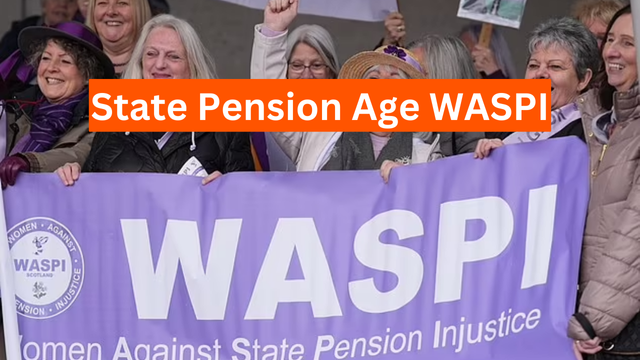The Women Against State Pension Inequality (WASPI) campaign was started in 2015 to support women born between 1950 and 1960 who were affected by the UK government’s decision to raise the State Pension age from 60 to 66. Many women in this age group were not adequately informed about the changes, leading to unexpected financial and emotional challenges as they found themselves needing to work additional years or adjust their retirement plans suddenly.
You’ll discover the details of the WASPI campaign, the challenges faced by women due to changes in the State Pension age, and the current status of their fight for compensation. If you’re interested in understanding this important issue and its broader implications, Continue browsing.
State Pension Age WASPI
The central issue that WASPI highlights is the government’s failure to communicate these changes clearly and in a timely manner. The women affected by the changes were not given enough notice, leaving them unprepared for the extra years they would need to continue working before they could access their pensions. This lack of preparation resulted in financial strain for many, with some women having to delay their retirement, face a reduced standard of living, or even return to work after retiring.
Current Status: When Will WASPI Get a Decision?
As of March 2024, the Parliamentary and Health Service Ombudsman (PHSO) concluded its investigation into the matter, finding that the Department for Work and Pensions (DWP) had mishandled the communication process. Despite this finding, a final decision on how to compensate the affected women has not yet been made. The situation has been further complicated by recent political events, such as the dissolution of Parliament for elections, which delayed any decisions or compensation payments until the latter half of 2024.

WASPI Compensation
Although the exact amount of compensation is still undecided, there are discussions suggesting that affected women could receive between £1,000 and £2,950 each. The compensation could be provided in various forms, such as lump-sum payments, top-up payments, or early access to the State Pension. However, the final details and timelines for these payments are still unclear and will likely depend on the priorities of the newly elected government and further discussions on the issue.
Who is Eligible for Compensation?
The changes to the State Pension age primarily impact women born between April 6, 1950, and April 5, 1960. These women originally expected to retire at 60, but now face a retirement age of up to 66. While the WASPI campaign focuses on this group, it is important for everyone to check their specific State Pension age, as it can vary depending on their birthdate.
Why the WASPI Campaign Matters
The WASPI campaign is not only about seeking compensation but also about ensuring that the government is held accountable for its poor communication and that future changes to pension policies are handled more transparently. The campaign’s outcome could set a precedent for how similar issues are managed in the future, emphasizing the need for fairness and clear communication when making decisions that significantly impact people’s lives.
For those affected, it is crucial to check ongoing developments in the WASPI campaign and their rights. Checking the official WASPI website regularly is recommended for updates. The campaign operates through donations and membership fees, and those who support its goals can contribute to its efforts to secure a fair resolution for the women impacted by these pension age changes.
Final Thought’s
The WASPI campaign has brought attention to the hardships faced by women who were unprepared for the sudden changes to the State Pension age. Although the government has recognized its communication failures, many women are still waiting for compensation. The campaign continues to push for a fair outcome, advocating for better transparency and accountability in future pension policy decisions. The outcome of this effort could have lasting implications for future government decisions affecting people’s lives.
